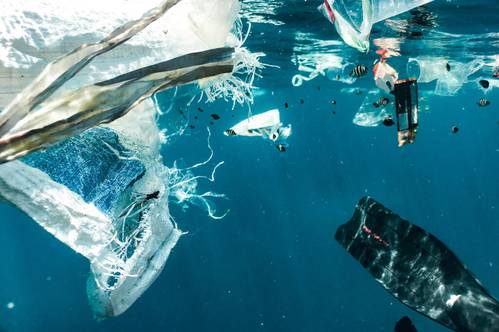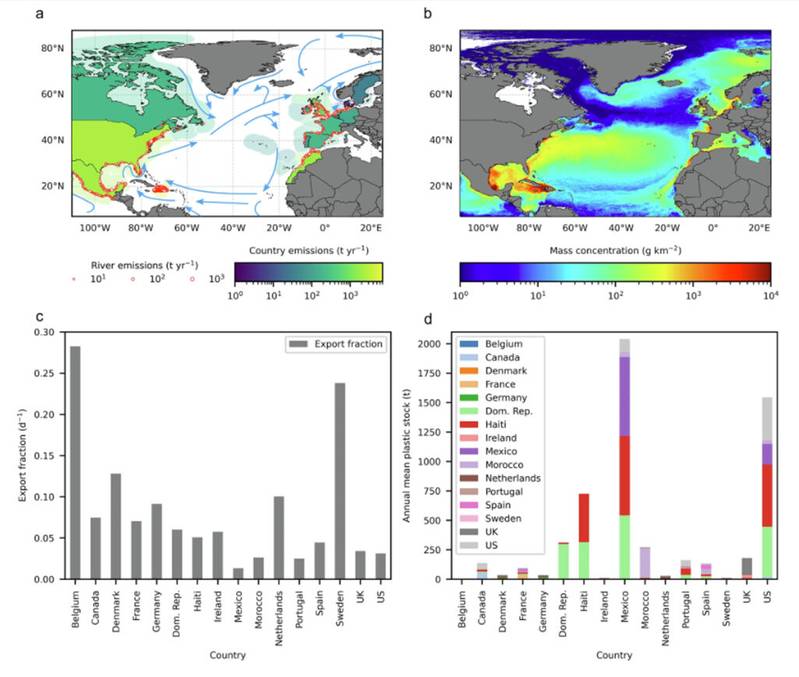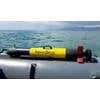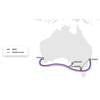Plymouth Marine Lab: Study Shows Benefits of Cross-Country Plastic Pollution Management

A new study shows cross-country collaboration in tackling marine plastic pollution could yield significant economic and environmental returns. Credit: Plymouth Marine Labs
A new study shows cross-country collaboration in tackling marine plastic pollution yields significant economic and environmental returns, up to $36B with a 64% reduction in emitted plastic for countries bordering the North Atlantic.
The study focuses specifically on floating macroplastic (larger than 0.5 cm) entering the marine environment via rivers. An estimated 4.8 to 12.7 million metric tons of plastic that enters the global ocean annually, threatening marine ecosystems and biodiversity worldwide.
Using data on plastic emitted via rivers with models of the ocean and atmosphere circulation, the authors simulated the movement and spatial distribution of plastic in and around the North Atlantic Ocean. These simulations were used to estimate the contribution of each country to the stock of plastic in the territorial waters of all other countries.
The team then combined the results of the ocean modeling with economic valuation and game-theoretic analysis to assess the benefits of cooperation between 16 North Atlantic nations, including the UK, US, Canada, Mexico, Morocco, Haiti, the Dominican Republic and several western European countries.
 a) Map showing the countries included in the study; the extent of their respective exclusive economic zones (EEZs); their river emissions; and the major ocean currents influencing the transfer dynamics of surface ocean plastic in the region. b) Map showing the modeled, annual mean mass concentration of surface ocean macroplastic in the North Atlantic in the year 2014. c) The annual mean of surface ocean plastic within each EEZ which is exported per day to the EEZ of a neighboring country, or to other waters, in the year 2014. d) The annual mean stock of surface ocean plastic within the EEZ of each country in the year 2014, with colors indicating the country from which the plastic originated. Credit: Plymouth Marine Lab
a) Map showing the countries included in the study; the extent of their respective exclusive economic zones (EEZs); their river emissions; and the major ocean currents influencing the transfer dynamics of surface ocean plastic in the region. b) Map showing the modeled, annual mean mass concentration of surface ocean macroplastic in the North Atlantic in the year 2014. c) The annual mean of surface ocean plastic within each EEZ which is exported per day to the EEZ of a neighboring country, or to other waters, in the year 2014. d) The annual mean stock of surface ocean plastic within the EEZ of each country in the year 2014, with colors indicating the country from which the plastic originated. Credit: Plymouth Marine Lab
The study also demonstrated that while cooperation would yield substantial overall benefits, these benefits would be distributed unequally. Some nations might even experience net economic losses without additional compensation mechanisms. These arise due to differences in i) the amount of plastic litter entering the marine environment from each country, ii) the net transport of litter between countries, and iii) the ability of each country to pay to reduce levels of plastic in the marine environment.
When examining the impact of different political constraints, it was concluded that the least damaging constraint in terms of both overall macroplastic pollution reductions and net economic benefits is that of ensuring no country is allowed to increase its baseline emissions.
In the emissions data used within the study, the UK is a relatively large emitter of plastic compared to other European counties. The study found that plastic emitted by the UK is transported to and through the waters of countries bordering the North Sea. Some of this plastic is eventually transported towards the Arctic.
“The connected nature of the marine environment suggests that coordinated actions by countries sharing an ocean border may provide more effective pollution control than unilateral actions by any one country,” said co-author, Prof. Nicola Beaumont, Head of Science for the Sea and Society group at Plymouth Marine Laboratory and lead of the Society and Regulation pillar of the North Atlantic Microplastic Centre (NAMC).
To the best of the authors’ knowledge, this research is the first to combine ocean and economic models to establish the benefits of coordinated plastic pollution management across multiple nations sharing an ocean border.
The new research was a collaborative effort between oceanographers and social scientists at Plymouth Marine Laboratory, and economists from University of Aberdeen, University of Glasgow, the Berlin School of Economics in Germany and Clark University in the United States.














 December 2025
December 2025



